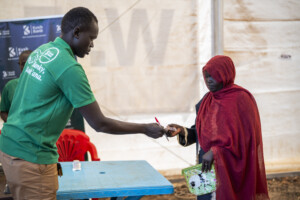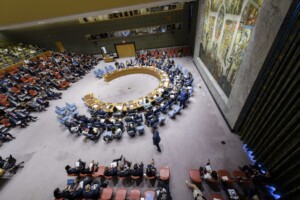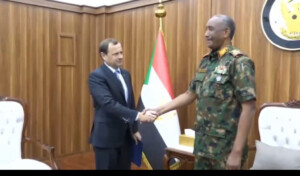4,000 families flee to rebel-held territory in southern Sudan
4,000 families fled to areas in the Nuba Mountains controlled by the SPLM-N faction of Abdelaziz El Hilu after the violent events in South Kordofan’s capital Kadugli last month.
 (file photo)
(file photo)
4,000 families fled to areas in the Nuba Mountains controlled by the Sudan People's Liberation Movement-North faction of Abdelaziz El Hilu after the violent events in South Kordofan’s capital Kadugli last month.
An official of a human rights organisation monitoring the region reported to Radio Dabanga that the 4,000 families settled in the localities Heiban, El Buram and (the south of) Kadugli.
He said that they live in dire circumstances. They urgently need food and shelter material. He claimed that the authorities in the region carry out humanitarian interventions, but these are insufficient compared to the needs. He called upon international humanitarian organisations to intervene immediately.
Blue Nile state
People in Blue Nile state appealed to all parties at the peace negotiations in Juba, and the SPLM-N faction led by Malik Agar in particular, to sign a peace agreement, so that security and stability can lead to development in Blue Nile, ‘as it is one of the states most affected by the war’.
The chairman of the Ahl El Daawa initiative of the SPLM-N Agar, El Sir Ibrahim, said that the peace process must move forward. Signing a peace agreement is the first step towards stability that will allow the displaced and refugees to return to their villages that they have abandoned so long ago, and contribute to development.
SPLM-N
In March 2017, the SPLM-N split into two factions, when Nuba rebel leader Abdelaziz El Hilu resigned. The faction headed by Malik Agar is stationed in Blue Nile state, and is still part of the Sudan Revolutionary Front rebel alliance (SRF), which is engaged in peace negotiations with the Sudanese government in Juba since October last year. The SPLM-N El Hilu continued fighting the government of Al Bashir from the Nuba Mountains in South Kordofan. It joined the peace talks separately.
The talks between the government and SPLM-N El Hilu reached a stalemate in the end of December, as the rebel faction adhered to its long-standing position with regard to self-determination and a secular state, while the government did not seem inclined to cancel the Sharia (Islamic law), imposed by the regime of Jaafar Nimeiri in September 1983.
The talks resumed in mid-January, but no progress was reported. In a statement dated May 28, the SPLM-N El Hilu denied rumours that they withdrew from the peace negotiations.
“We deposited our position paper on State and Religion to the South Sudanese mediation team on February 26, and received no response from the government up to this moment,” Amar Deldoum, the movement’s chief negotiator stated.
Radio Dabanga’s editorial independence means that we can continue to provide factual updates about political developments to Sudanese and international actors, educate people about how to avoid outbreaks of infectious diseases, and provide a window to the world for those in all corners of Sudan. Support Radio Dabanga for as little as €2.50, the equivalent of a cup of coffee.










 and then
and then